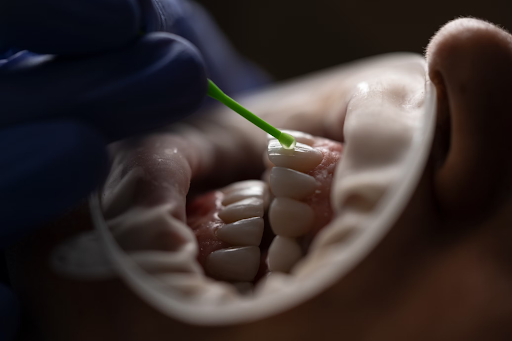When it comes to restoring your smile and oral functionality, dentures play a crucial role. Whether you’re missing a few teeth or need a complete set, understanding the difference between full and partial dentures is essential.
Each option has its own benefits and considerations depending on your individual needs and dental health.
Full Dentures: Complete Smile Restoration
Full dentures are designed for those who have lost all of their natural teeth in one or both jaws. These dentures replace all teeth and are custom-made to fit snugly over your gums. They are typically made from acrylic or porcelain, offering durability and a natural appearance.
Design and Fit
Full dentures are crafted to mimic the shape and color of natural teeth. They are supported by the gums and sometimes by dental adhesive for added stability. The fit is crucial, as it ensures comfort and proper functionality when speaking and eating.
Functionality
Once fitted, full dentures restore the ability to chew food properly and speak clearly. They also support facial muscles, preventing a sunken appearance that can occur when teeth are missing.
Care and Maintenance
Proper care of full dentures involves daily cleaning with a denture brush and soaking them in a denture cleaning solution overnight. Regular dental check-ups are important to ensure the dentures fit well and to address any changes in your oral health.
Partial Dentures: Filling in the Gaps
Partial dentures are ideal for individuals who have some natural teeth remaining in their mouth. They consist of replacement teeth attached to a gum-colored plastic base, which is often connected by metal framework to hold the denture in place around existing teeth.
Design and Fit
Partial dentures are customized to blend with your natural teeth, providing a seamless appearance. The metal framework ensures a secure fit, preventing movement or shifting when eating or speaking.
Functionality
By filling in gaps caused by missing teeth, partial dentures help maintain proper tooth alignment and prevent surrounding teeth from shifting. They also restore the ability to chew effectively and improve speech clarity.
Care and Maintenance
Similar to full dentures, partial dentures require daily cleaning to remove food particles and plaque. Brushing with a denture brush and soaking in a denture cleaning solution overnight helps keep them clean and fresh. Regular dental visits are important to assess the fit and make any necessary adjustments.
Choosing Between Full and Partial Dentures
The decision between full and partial dental veneers depends on several factors:
- Extent of Tooth Loss: Full dentures are suitable if you have lost all your teeth, while partial dentures are designed for those with some natural teeth remaining.
- Oral Health: The condition of your remaining teeth and gums influences which type of denture is recommended by your dentist.
- Budget and Insurance Coverage: Full dentures tend to be more expensive than partial dentures. Understanding your insurance coverage and budget constraints can help in making a decision.
Conclusion
Whether you opt for full or partial dentures, both options are effective in restoring your smile and oral function. They provide support for facial muscles, improve chewing ability, and enhance speech clarity. Consulting with your dentist is crucial to determine the best option for your specific dental needs.
Remember, maintaining good oral hygiene and attending regular dental check-ups are essential for the longevity and effectiveness of your dentures.
